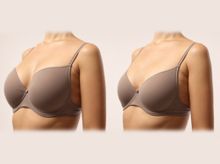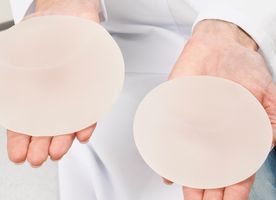Breast Implant Removal in South Korea
Search and Compare the Best Clinics and Doctors at the Lowest Prices for Breast Implant Removal in South Korea




































































































































No Time?
Tell us what you're looking for and we'll reach out to the top clinics all at once
What does a Breast Implant Removal Procedure Involve?
A Breast Implant Removal procedure is a calculated surgical manoeuvre aimed at safely excising previously inserted implants. Put simply, this is the dismantling of an alternating architecture earlier inhabited by your body. Commanding precision, diligent skill, and impeccable dexterity, such operations warrant the direction and attention of highly experienced and specialized surgeons, preferably in the confines of a well-reputed and equipped medical facility.
Involved intricacies in Breast Implant Removal procedures take us through a labyrinth of medical know-how, evolving around incisions, extraction, and possible elimination of capsules. An incision, typically on the previous scar, opens up the path to the implants, executing a surgical breach into your body's established order. Then proceeds the removal of the implant, demanding the utmost delicacy, performed with keen eyes and steady hands.
How Long Should I Stay in South Korea for a Breast Implant Removal Procedure?
The healing process following a Breast Implant Removal is often not overly drawn out. Most patients may usually return to their daily lives after the treatment, which is done under anaesthesia, within a few days. But it's crucial to remember that everyone recovers differently, so your particular experience can differ.
For the entire recuperation cycle in South Korea, which includes pre-and post-op consultations, you should plan on around a week. You can normally resume your regular habits after this, including work, exercise, and other daily activities. To ensure a secure and effective recuperation, always bear in mind to pay attention to any special recommendations from the doctor.
What's the Recovery Time for Breast Implant Removal Procedures in South Korea?
Recovering after a Breast Implant Removal can take a different amount of time for everyone. You will need to plan for some time between a few days to a few weeks after the surgery to fully recover. This doesn't only rely on how complicated the surgery is, but also on how up-to-date the medical tools are and how skilled your doctor is.
Paying attention to how your body feels is also critical. By staying in tune with your body, you can spot signs of recovery your doctor might overlook. Keep an eye out for things like pain, swelling, or discomfort. These signs might mean your healing time is longer or shorter than expected.
What's the Success Rate of Breast Implant Removal Procedures in South Korea?
The success rate of breast implant removal procedures in any given locale, on a broad scale, tends to be fairly high. Said success hinges primarily on the competent synchronization of several key factors, namely, the skill and expertise of the surgeon, the nuances of the individual procedure, and the patient's overall health status and resilience.
While it is scientifically invigorating to fixate on success rates, diving a little deeper into what constitutes 'success' might be of utility. Most commonly, success in a surgical context equates to the elimination of the issue at hand with minimal side effects, satisfactory aesthetic results, and quick patient recovery.
Are there Alternatives to Breast Implant Removal Procedures in South Korea?
Indeed, alternatives to breast implant removal procedures do exist, penciling in as options rooted essentially in personal priorities and medical advisories. Primarily, Breast Implant Replacement is a plausible alternative, where patients opt for a new set of implants in lieu of the outgoing ones. Diverse reasons embellish this choice, ranging from a desire to alter their size, shape, or material to remediation of complications with the existing implants.
Another alternative could be a fat transfer, wherein fat is harvested from another part of your physique and injected into your breasts, thereby maintaining their size and shape, albeit with a more natural feel. Natural breast augmentation is yet another path averse to implants, resorting instead to a combination of a mini-breast lift with fat transfer. As always, the choice of a reputed medical facility can amplify your comfort and optimize the benefits accrued from these alternatives.
What sort of Aftercare is Required for Breast Implant Removal Procedures in South Korea?
Aftercare post Breast Implant Removal procedures in South Korea necessitate a meticulous regime marked by time, attention, and careful precautions to ensure optimum recovery and healing. Emotionally, it can be daunting; the fear of the unknown, and the anxiety related to pain and appearance post-surgery can be overwhelming. However, ensuring you have a comprehensive understanding of the procedure, anticipated outcomes, and necessary aftercare reduces uncertainties and can prepare you better.
The post-operative regimen includes regular monitoring of incisions for any signs of infection, prudent management of pain with prescribed medications, gentle exercises to maintain arm movement and avoid stiffness, and wearing of a supportive bra for upliftment and comfort.
What Should You Expect Before and After the Procedure?
You should anticipate a thorough meeting with your selected surgeon prior to a Breast Implant Removal. This conversation, which provides the groundwork for your surgical journey, is a meticulously crafted tapestry of your medical history, surgical plans, and desired outcomes. To give a thorough insight into your anatomical and physiological environment, it may also be necessary to request other investigations, such as imaging scans or laboratory testing.
The immediate phase following the Breast Implant Removal is typically tempered by brief pain, edema, and bruising. If used, surgical drains, wound care, and postoperative drugs all have a big part to play. It is crucial to have a reliable person on hand to take care of your postoperative needs for the first few days.
This information has been accurately sourced and verified by a medical professional for its accuracy, however, we strongly recommend you to consult with your doctor before pursuing medical procedures overseas.

















